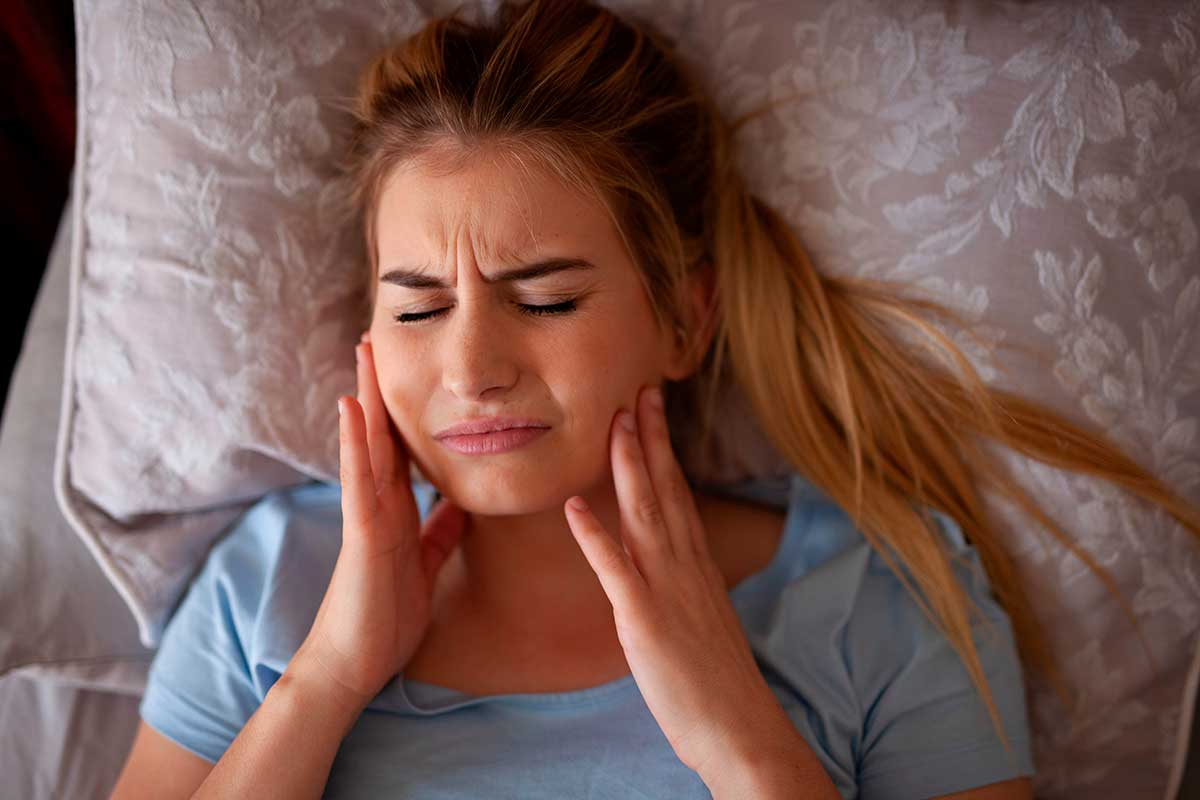
Bruxism
Watch our video about Bruxism
Bruxism Treatment at Clinic Consultation: Relieving Jaw Tension and Protecting Your Teeth
What is Bruxism?
Bruxism is a condition characterised by the involuntary grinding or clenching of teeth, often occurring during sleep but sometimes while awake. This repetitive action can lead to a variety of dental and jaw-related issues, such as tooth damage, jaw pain, and headaches.
At Clinic Consultation, we offer advanced diagnostic tools and treatments to address bruxism effectively. Our focus is on alleviating discomfort, preventing further complications, and improving the quality of life for our patients.
What Are the Causes of Bruxism?
Bruxism can result from various factors, including:
- Stress and Anxiety: Emotional tension often triggers teeth grinding.
- Sleep Disorders: Conditions like sleep apnoea are associated with bruxism.
- Malocclusion: Misaligned teeth or bite issues can contribute to clenching.
- Medications: Certain antidepressants and stimulants may cause bruxism as a side effect.
- Lifestyle Factors: Excessive caffeine or alcohol consumption can exacerbate the condition.
- Neurological Conditions: Disorders like Parkinson’s disease may increase the risk of bruxism.
- Genetics: A family history of bruxism may predispose individuals to the condition.
Understanding the root cause is essential for creating an effective treatment plan, which is why Clinic Consultation provides comprehensive assessments.
How Can Bruxism Be Prevented?
Preventing bruxism involves adopting healthy habits and managing underlying triggers:
- Stress Management: Techniques such as meditation, yoga, or counselling can reduce emotional tension.
- Avoid Stimulants: Limiting caffeine and alcohol, especially before bedtime.
- Improving Sleep Hygiene: Creating a relaxing bedtime routine and addressing sleep disorders.
- Regular Dental Check-Ups: Early detection of signs of bruxism can prevent progression.
- Custom Mouthguards: Wearing a protective device to minimise tooth damage.
- Jaw Exercises: Stretching and strengthening exercises prescribed by a specialist.
- Posture Awareness: Avoiding prolonged jaw tension during activities like phone use.
At Clinic Consultation, our specialists guide patients on preventive measures tailored to their lifestyle and needs.
What Are the Treatments for Bruxism?
Bruxism treatments focus on managing symptoms, addressing underlying causes, and preventing further damage:
Custom-Fitted Mouthguards: Protect teeth from grinding during sleep.
Stress Reduction Techniques: Includes mindfulness exercises or therapy.
Orthodontic Treatment: Corrects bite issues that may contribute to bruxism.
Botox Injections: Temporarily relaxes overactive jaw muscles to reduce clenching.
Physical Therapy: Relieves jaw tension and improves muscle function.
Medication: Prescribes muscle relaxants or anti-anxiety drugs when necessary.
Lifestyle Changes: Includes dietary adjustments and limiting stimulants.
At Clinic Consultation, we provide a multi-faceted approach to ensure comprehensive care for our patients.
Advantages of Treating Bruxism
Addressing bruxism has numerous benefits for oral health and overall well-being:
Prevents Tooth Damage
Protects teeth from cracks, chips, and wear caused by grinding.Relieves Jaw Pain
Alleviates tension in the jaw muscles and joints.Improves Sleep Quality
Reduces disturbances caused by clenching or grinding.Reduces Headaches
Minimises tension headaches associated with bruxism.Enhances Oral Health
Prevents gum recession and sensitivity linked to grinding.Improves Bite Alignment
Addresses underlying bite issues contributing to the condition.Boosts Confidence
Resolves issues affecting speech and smile aesthetics.
How Long Does Bruxism Treatment Take?
The duration of bruxism treatment depends on the severity of the condition and the chosen approach. Immediate relief can often be achieved with mouthguards or Botox, while long-term solutions such as orthodontic adjustments may take several months.
At Clinic Consultation, we customise treatment plans to deliver effective results while monitoring progress and adjusting strategies as needed.
Who Is Bruxism Treatment Suitable For?
Bruxism treatment is recommended for individuals who:
- Experience frequent jaw pain or stiffness.
- Suffer from headaches or earaches, particularly in the morning.
- Notice visible wear or damage to their teeth.
- Have difficulty sleeping due to grinding sounds.
- Struggle with dental sensitivity caused by enamel loss.
- Show signs of gum recession or bite misalignment.
- Seek to prevent further complications, such as TMJ disorders.
Early intervention is key to preventing long-term damage, which is why seeking help from Clinic Consultation is highly beneficial.
What Are the Alternatives for Those Unable to Undergo Bruxism Treatment?
For patients who cannot pursue standard treatments, alternative options include:
- Behavioural Therapy: Teaches relaxation techniques to minimise jaw tension.
- Dental Bonding or Crowns: Repairs damaged teeth caused by grinding.
- Acupuncture: A holistic approach to reduce muscle tension and stress.
- Cold or Heat Therapy: Provides temporary relief for sore jaw muscles.
- Dietary Adjustments: Soft foods reduce strain on the jaw.
- Massage Therapy: Targets trigger points to alleviate discomfort.
At Clinic Consultation, our specialists explore all viable options to ensure each patient receives effective care.
Book Your Bruxism Treatment at Clinic Consultation
Addressing bruxism is essential for protecting your teeth, relieving discomfort, and improving your quality of life. At Clinic Consultation, our team of experts provides tailored solutions to meet your specific needs. Schedule your consultation online today and take the first step towards a healthier, pain-free smile.
Click here to schedule an appointment online